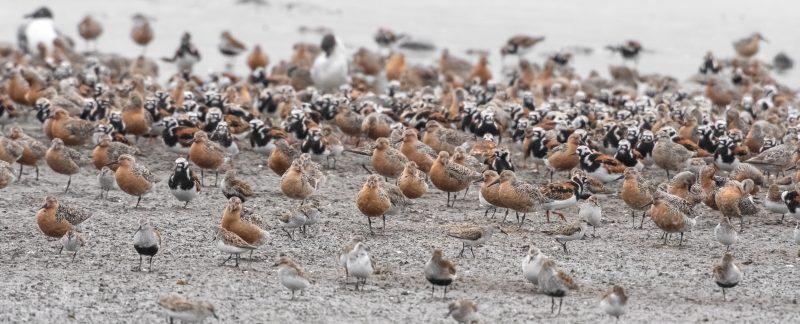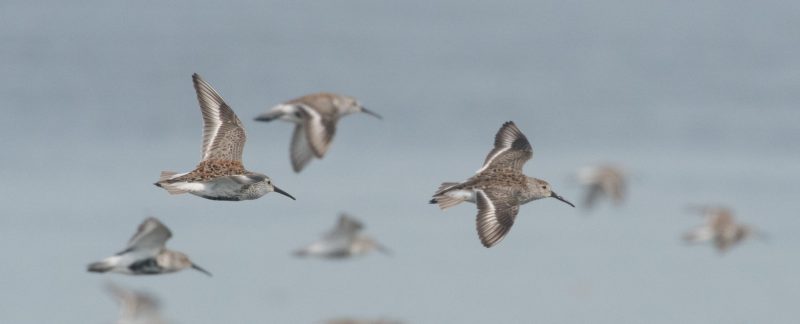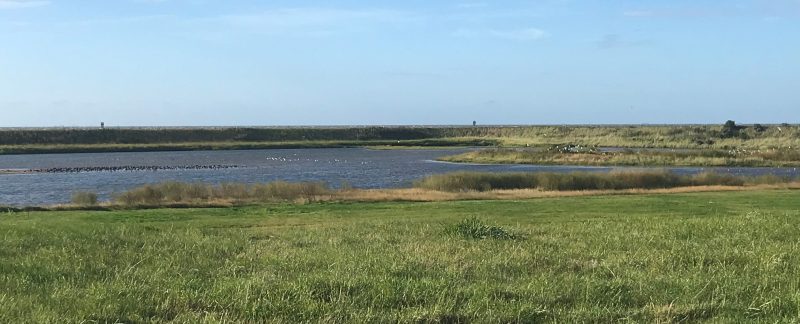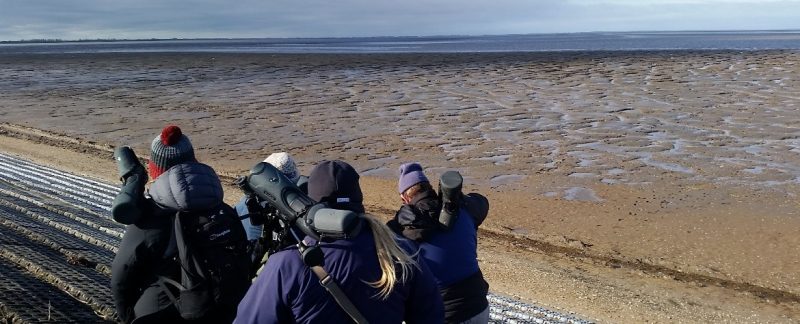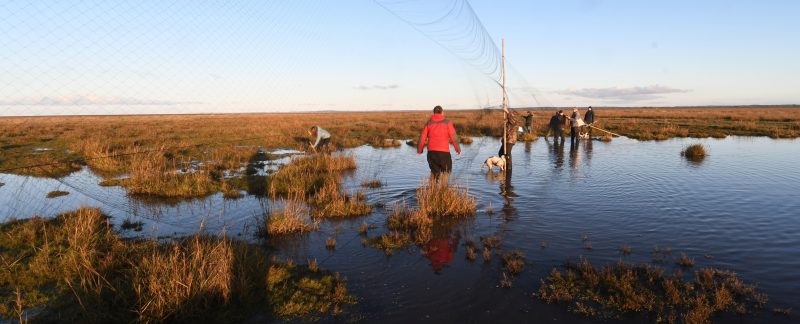Our third week started with the next aerial count; this one was setting out from Cape May at 08:00 hrs. We were all on site on time and got some counts done before the plane came over at the expected time. Strangely, the plane didn’t do the second pass over Mispillion, which is the usual protocol. There were good numbers of Knot on Back Beach, so the Mispillion count team stayed out to resight there, as did the Brock team, while Cathy and Lys went out to trap the PIPLs at Fowler’s. With relatively good resighting in Mispillion through the day there were three boat trips, with the last crew leaving when it started to get dark – the rest of us ate our frittata before they got back!
Continue Reading →